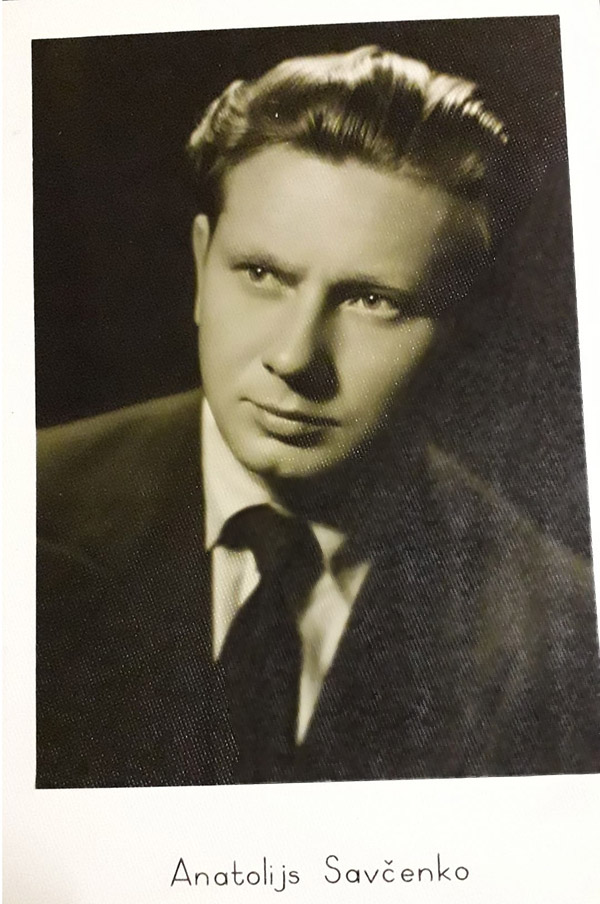Anatolij Savchenko
When he was a child, in 1945, his family relocated to Riga, the capital of Latvian Soviet Socialist Republic, where he finished school in 1947, and went to work as a milling machine operator at "Avtoelektropribor" factory. In 1952, he was drafted. Having a prefect ear for music and an outstanding voice, he started singing in an army choir, and eventually was sent to study in a music school for adults. After some time, he was chosen as the director of the choir. After leaving the army, he got back to Riga, and went to work at the factory again. But his passion for music and singing got even stronger, and he entered the vocal studio of the Rail Workers Club. In 1957, he won an all-Latvian competition for young singers, and got an invitation to sing in an opera choir. Working at the theater opened before him a whole new world of opera, with which he had been unfamiliar, and which enchanted him. He persisted at his studies to develop his vocal skills. After two years, the management of the theater started offering him small solo roles, at which he excelled, and so he started an apprenticeship at the opera troupe under the supervision of the Bulgarian professor Ilija Josifov, and subsequently went to study with the great Latvian singer and university professor Aleksandrs Viļumanis and the singer Alida Vane. Beginning from 1960, he started to appear throughout the lyric tenor repertory at the opera house. He sang Duca, Faust, Almaviva, Vladimir, Alfredo, Rodolfo, Sinodal, and Alexis in the opera Audrini by Gravitis. He was known for his wonderful renditions of Lenskij and Hoffmann. As time went by, he became one of the leading soloists. His control of his voice was said to be complete, and his timbre was warm and ripe, while the voice itself was big enough to fill the theater hall. He gave many concerts, and also sang popular songs. He was said to always find interesting and new interpretations and keep his vocal performance at the highest level, never disappointing the audience. He had a great following among the those who frequented the Riga opera theater. Acclaimed Artist of the Latvian Soviet Socialist Republic (1975); the Latvian transliteration of his name is Anatolijs Savčenko. From 1993 to his death, he sang at the "White Chrysanthemum" concert venue, mainly romances and songs, solo or in duet.
Many thanks to Igor Milner for all the material on this page. |
